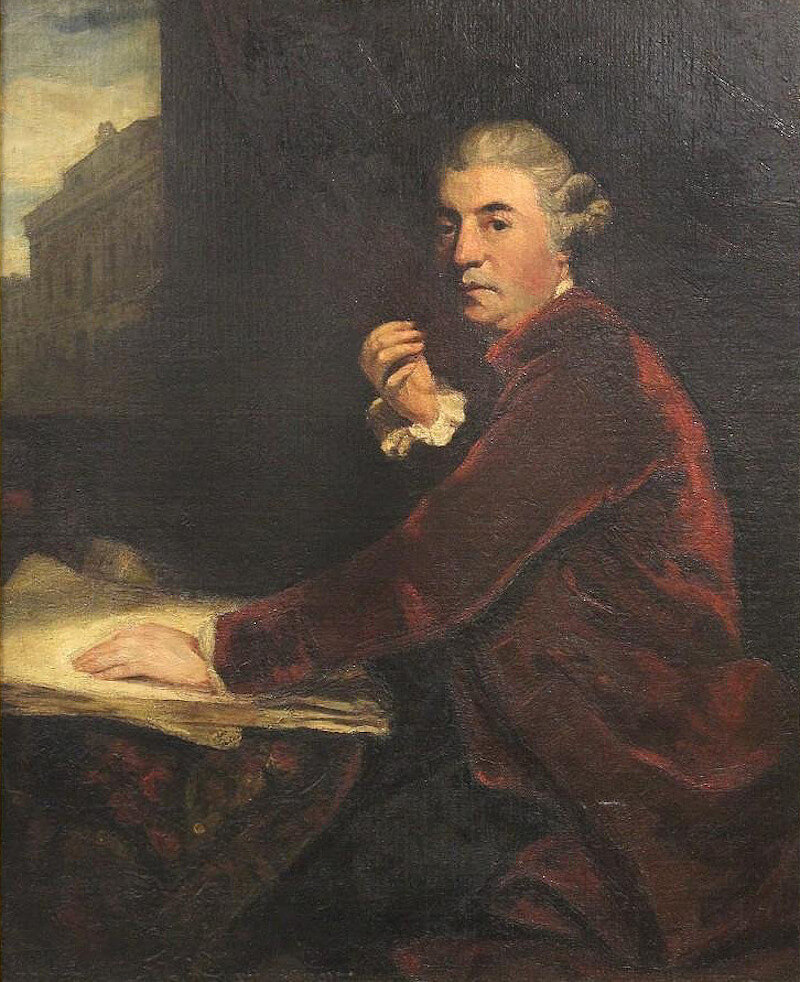Chambers after Reynolds, C. 1800
Oil on herringbone canvas copy of Joshua Reynolds’s portrait of the architect Sir William Chambers painted in 1779; the original of which is in the Royal Academy of Arts, London. This is one of few known copies painted after the architect’s death, circa 1800.
Sir William Chambers: Sir William Chambers, (Feb. 23, 1723, Gothenburg, Sweden—died March 8, 1796, London, England), Swedish-British architect of the Georgian period who was one of the leading Palladian-style architects of his day. He was the son of a merchant of Scottish descent living in Sweden. At age 16, after education in England, Chambers entered the service of the Swedish East India Company. A voyage to Canton supplied the materials for his first design book Designs of Chinese Buildings (1757). In 1749 he studied architecture, first in Paris with the influential architectural theorist Jacques-François Blondel and then in Rome. Returning to England in 1755, he became architectural tutor to the Prince of Wales, the future George III. This appointment led to an extremely successful career as an official Royal architect. He helped found the Royal Academy of Arts in 1768 and was its first treasurer. Upon receiving the knighthood of the Polar Star from the king of Sweden, he was allowed by George III to assume the rank and title of an English knight. His best-known works are Somerset House in London (1776–86); the casino at Marino, near Dublin (c. 1776); Duddingston House in Edinburgh (1762–64), and ornamental buildings at Kew Gardens (1757–62), then Surrey. Chambers was and is revered for his profound knowledge of architecture that transformed the accepted motifs of Palladianism in Great Britain and abroad. His books, notably A Treatise on Civil Architecture (1759), had widespread influence; his last published writing was a Dissertation on Oriental Gardening, 1772.
Literature: Mannings, David and Martin Postle, contributor. Sir Joshua Reynolds: A Complete Catalogue of his Paintings, 2 vols., New Haven and London: Yale University Press, 2000, vol. 1, p. 129, no. 346 and nos. 346a-d.
INFORMATION
Price: $
Condition: Good. Wear commensurate with age. Revarnished and wax-lined c. 1975.
Number of items: Sold
Measurements:
Width: 38.25
Height: 47.63
Depth: 1
VIEW MORE IMAGES
https://acroterion.com/product/chambers-after-reynolds/














